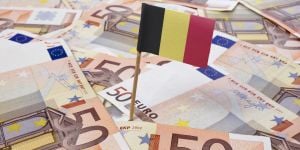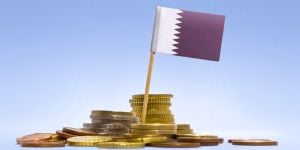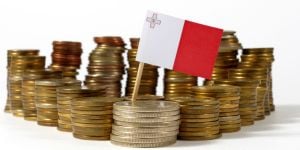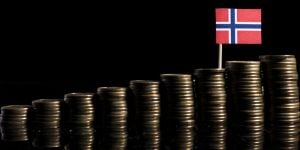
Which countries have the most favorable tax systems for expats? If tax evasion is a crime, tax optimization (which consists in using legal means to reduce taxes) is quite normal. Some countries offer a particularly advantageous tax system for expatriates. But do these advantages always mean saving money? Are there other forms of taxes?
Expats and non-taxation: the best destinations
Unsurprisingly, the best destinations for tax avoidance are in the Gulf countries and the Caribbean. In the United Arab Emirates (UAE), expatriates are exempt from income tax. They also do not pay capital gains tax or inheritance taxes. Bahrain, Kuwait, Qatar and Oman have similar policies, and in Saudi Arabia, expatriates do not pay income tax.
Like in the Gulf countries, expats living in the Bahamas are exempt from income tax and other capital gains or inheritance taxes. So do those who live in Bermuda, provided they have a permit to work there. The Cayman Islands also exempts expatriates from any personal tax.
In Europe, a single jurisdiction stands out: Monaco. Located not far from the southern French city of Nice lies the Monegasque rock, which is famous for exempting its ultra-wealthy expatriates from personal taxes. Other destinations that offer tax benefits to expats include Antigua & Barbuda, Brunei, Luxembourg and the Netherlands. In the United States, Florida, Texas, Washington, or Alaska do not levy income tax.
The tax haven controversy
A tax haven is defined as a state that offers tax advantages to non-residents who invest in its territory. In 2023, the British Virgin Islands, the Cayman Islands, Luxembourg, and some American states are considered tax havens. This list varies, however, depending on the country. For example, Switzerland, the United Arab Emirates, or even Monaco are in a grey area. Some still consider them tax havens, while others do not.
For example, in 2019, Switzerland was removed from the European Union (EU) list of tax havens. But in November 2022, a delegation from the European Parliament visiting Switzerland considered that despite its efforts, the Swiss Confederation remains "a haven of tax secrecy". For the OECD and the EU, Monaco is no longer a tax haven in the strict sense of the term but a jurisdiction "without direct taxation" that offers significant advantages for its wealthy expatriates. Nevertheless, many still consider Monaco a tax haven, just like they do for the United Arab Emirates, even if the latter would love to give itself a new image. In direct competition with Saudi Arabia, the UAE wants to set itself up as a pole of attraction for wealthy expatriates. But at the same time, the country also needs to be seen as a complying state, and consequently, as of June 2023, the UAE will levy a tax on companies for the first time. However, that tax will be as low as 9% to continue attracting foreign investors.
Taxation of expats' earnings?
In Egypt, a tax controversy swelled so quickly that the government had to swiftly issue a denial statement. The debate started earlier this month when local media reported a proposal by Deputy Senate President Abu Shoka. The politician reportedly suggested that the state could deduct a percentage of the salaries of Egyptians who live and work abroad. The news came as a shock for the Egyptian overseas community, and faced with the magnitude of such controversy, Shoka had to retract the proposal on the same day. However, it was too late to stop the wave of anxiety that gripped Egyptian expatriates. Many have been asking why they should pay a tax in Egypt for working abroad. For them, the measure is all the more unfair as they contribute to the Egyptian economy by sending back part of their salary (especially in the form of funds sent to their families).
The Minister of Emigration and Expatriate Affairs, Soha El-Gendy reacted the day after the incident: “No, the government has no intention of taxing the salaries and earnings of Egyptian expatriates.” Abu Shoka also confirmed that the country would not undermine the income of its expatriates. On the contrary, Egypt will continue to protect them, as they are considered a "national asset”.
Indeed, 12 to 14 million Egyptians work abroad and bring in a lot of money. According to the Central Bank of Egypt, they injected $31.9 billion back into the country in 2021-2022. While the Central Bank notes a slight decline in remittances for the 2022-2023 fiscal year, it confirms the vital importance of this financial windfall. The country's reserves are on the rise; they reached $34.3 billion last February.
Does low or no taxes mean savings for expats?
The inflationary crisis of 2022 has caused consumer goods and services prices to soar. Even in countries that do not charge VAT and some tax-friendly countries, the cost of living comes with a hefty tag and spikes to new highs. To live in the Cayman Islands, Monaco, or the Bahamas, you must have a solid income.
Other states impose strict conditions: to reside in Bahrain, expatriates must own property worth at least $530,000. Retired expatriates must have a monthly income of at least $10,500. Other countries may impose fees; these are not considered taxes but are still an additional cost. Qatar, for example, does not levy a property tax, but the government may charge a registration fee for the property purchased.
In the game of tax optimization, one must first make sure to have the right cards in hand. The winners are, above all, those who have a certain level of income. When they invest abroad, they are not gambling on income that is essential to their survival but on income that they are ready to lose. This is one of the basic rules of investing while protecting one's capital. It is, therefore, not necessarily required to move to low-tax countries to save money. Although champions of taxation, like Denmark, France, or Belgium, are struggling to attract wealthy expatriates, it is still possible to make savings there, particularly by taking advantage of the tax exemption measures set up there.



















